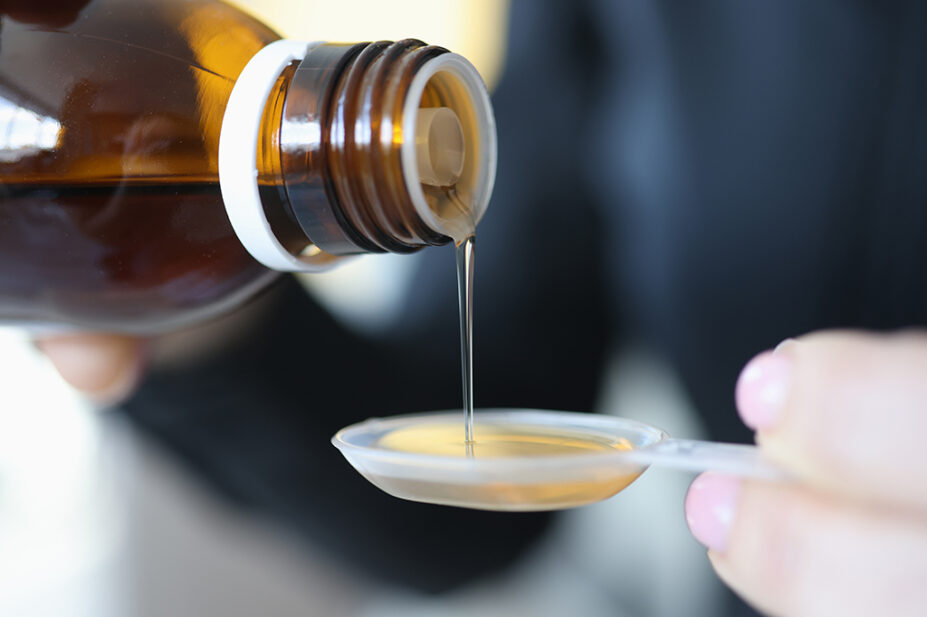
Shutterstock.com
Pholcodine-containing cough and cold medicines are to be removed from the UK market, following a review into their link with serious allergic reactions to neuromuscular blocking agents (NMBAs) used in anaesthesia, the Medicines and Healthcare products Regulatory Agency (MHRA) has announced.
In a statement published on 14 March 2023, the MHRA said the decision followed a “comprehensive scientific safety review” of the latest available data on the safety of pholcodine, together with advice from the independent Commission on Human Medicines.
It follows similar action carried out by the European Medicines Agency, which recommended the withdrawal of pholcodine-containing medicines from the EU market in December 2022.
Pholcodine, which is available to buy over the counter, is used to treat dry coughs in adults and children. It is marketed under various names, including Day and Night Nurse (GSK), Covonia (Thornton and Ross), and own brand cough relief products sold by major multiples, including Boots, Superdrug and Well Pharmacy.
The medicine works directly in the brain, depressing the cough reflex by reducing the nerve signals that are sent to the muscles involved in coughing.
On 2 September 2022, the European Medicines Agency (EMA) announced that it had started a review of pholcodine-containing medicines, following preliminary results of a study carried out in France.
The ‘Allergy to Neuromuscular Blocking Agents and Pholcodine Exposure’ (ALPHO) study, first published in 2014, found that taking pholcodine up to 12 months before general anaesthesia may increase the risk of having an NMBA-related anaphylactic reaction.
On 12 September 2022, The Pharmaceutical Journal confirmed that MHRA was also carrying out a review of the evidence.
In its statement published on 14 March 2023, the MHRA said that pholcodine-containing cough and cold medicines were consequently being removed from the UK market as a “precautionary measure”.
“There is already a known link between pholcodine and an increased risk of the very rare event of a severe allergic reaction (anaphylaxis) to muscle relaxants (neuromuscular blocking agents) that are used during general anaesthesia in surgery,” the statement said.
“In September 2022 the findings of a new study further strengthened the evidence of this link, but the overall risk is very small,” it added.
Alison Cave, chief safety officer at the MHRA, said safety was the organisation’s “top priority”.
“Following a thorough scientific safety review of all the available evidence on pholcodine, together with advice from the independent Commission on Human Medicines, it has been recommended, as a precautionary measure, that these products should no longer be used,” she added.
“If you are taking a cough or cold medicine, check the packaging, label or patient information leaflet to see if pholcodine is a listed ingredient. If it is, and you have any questions, you can talk to your pharmacist who will suggest an alternative medicine.
“If you have an operation scheduled using general anaesthesia, tell your anaesthetist if you think you have used pholcodine, particularly in the past 12 months. The anaesthetist will be well placed to take this into account. Anaesthetists are highly trained in managing anaphylaxis.
“If you want more information or advice, please speak to your pharmacist.”
Commenting on the move, Claire Anderson, president of the Royal Pharmaceutical Society, reiterated the advice given by Cave that patients should consult with their pharmacist.
“A cough usually clears up within three to four weeks,” she added.
“You can treat it with other cough medicines or hot lemon and honey (not suitable for babies under 1 year old). Rest up if possible and you can try paracetamol or ibuprofen, if suitable, to treat any pain. If your cough persists for longer than three to four weeks, seek advice from a healthcare professional.
“This withdrawal is needed as safety of patients is paramount and we support efforts to ensure that all medicines on the market are safe and effective.”


